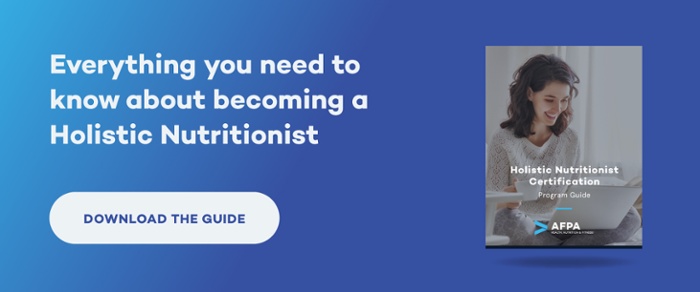Sugar is bad, and fruit has loads of it. Ergo, fruit is bad, right? With so much contradictory information on nutrition and healthy eating on the web, it can be hard to keep track of what’s true these days. And in some circles, fruit has become a bogeyman.
I certainly understand the confusion. But this reasoning is an over-simplification that incorrectly labels fruit as a harbinger of obesity. In fact, this mentality may be shielding you from some of the healthiest foods out there.
Fruit Won’t Make You Fat
There are two notions that have led to the idea that fruit should be avoided. The first is that fruit is loaded with sugar, and the second related concern is that fruit is mostly carbohydrates. Both of these sentiments lead many to assume eating fruits will lead to weight gain.
Yet, the health benefits of fruits are well established. In fact, a study investigating the global burden of disease found that low fruit intake was the 4th leading risk factor for morbidity and mortality. We should be eating more fruits, not less.
And the anti-obesogenic effects of fruit are well established too. A peer-reviewed review article assessed what the researched had to say about the matter. A wide variety of studies, including intervention randomized controlled trials, prospective cohort studies, and cross-sectional studies all point towards an inverse association between fruit intake and obesity. In other words, the more fruit you consume, the less heavy you are likely to weigh.
Even the famed Weight Watchers program gives zero points to fruits (the same as vegetables), meaning you are free to consume as much of them as you’d like.

Take a Peek Inside AFPA’s Holistic Nutrition Coach Certification
Curious what it’s really like to study holistic nutrition at a professional level? Get the free course preview and see the actual learning modules, frameworks, and real-world coaching applications that prepare AFPA graduates for success.
How Can Fruit Lead to Weight Loss?
It seems paradoxical. Fruit is high in sugar, yet it can help you lose weight.
The magic of whole fruits lies in the abundance of other nutrients tied to anti-obesity effects. One of the more important nutrients whole fruits contain is fiber.
Fiber is typically under-consumed by the average American. Fiber has been linked to reducing your risk for heart disease, diabetes, and several cancers. Yet, we average around half of what the USDA recommends we eat everyday (which some argue is even too low itself).
In addition to these disease-risk lowering benefits, fiber is anti-obesogenic because it helps delay gastric emptying and increases satiety. That means, you’ll feel fuller, for longer. Eating whole fruits, then, helps you consume fewer calories.
Other reasons fruit is thought to help you lose weight are tied to wide of array of micronutrients and phytochemicals stored within them. Many of these nutrients, along with fiber, are thought to help you reduce fat accumulation and promote a gut ecology associated with leaner individuals.
Fruits Are Dense in Beneficial Nutrients
Fruits aren’t just good for you because they can help you lose weight (although that is a great contribution to health, too).
Fruits are also incredibly dense in many essential and non-essential micronutrients. This high density of micronutrients means that you can obtain large quantities of these nutrients without needing to consume massive amounts of food. In fact, when comparing the nutrient profiles of fruits using USDA-derived nutrient composition data, a nutrient density analysis showed berries rank high not just among fruits but among all foods.
The high density of fiber, micronutrients, and other phytochemicals in fruits are thought to be part of the reason they fit so well into diets associated with longevity. Many individuals from several Blue Zones – areas of the world that have a disproportionately high rate of active centenarians – eat a significant portion of the daily calories from fruit. For example, the average individual from the Greek island of Ikaria, known as the “place where people forget to die,” eat around 16% of their calories from fruits. And Seventh-Day Adventists from Loma Linda California eat around 27% of their calories from fruits.
{{cta(‘b980bf8c-2c00-434b-b141-43ae4b78fb11′,’justifycenter’)}}
Avoid Processed Fruits
There is one caveat to this message to eat more fruits. These health benefits are derived from eating whole fruits.
Eating processed fruit juices can lead to weight gain because they often are stripped of their satiety-inducing fiber. Not to mention, some juices can throw additional sugar into the mix which turns them into calorie-dense meals. They still contain many nutrients that are beneficial to consume, but it is best to consume these in moderation, if at all.
Other processed fruit items can also come with modified nutrient profiles that turn them from a health food into a junk food. Stick to whole, fresh fruit, and you won’t go wrong.
You might also enjoy 21 Foods for a Health Heart That You Should Eat Daily.
Take Home Message
Some circles have recently been badmouthing fruits. But as Berkeley Wellness says, “Don’t Be Afraid of Fruits.”
Whole, fresh fruits are an incredibly healthy addition to your diet. They are packed full of essential micronutrients and health-promoting phytochemicals. And these low-calorie, high-fiber foods have been shown repeatedly in clinical trials to lead to weight loss – not weight gain.
Plus, they’re delicious! They are excellent additions to everything from smoothies to salads, and a great way to get your children to eat healthy snacks.
Even though nutrition news seems to ceaselessly fluctuate, there are many tried and true messages that have lasted for decades. Eating plenty of fruits and vegetables is one of these staples that has withstood the test of time. As with most things related to nutrition, a well-balanced diet is the best approach to good health. This means not to overdo it on any single food group. But fruits should be a welcome addition!
About the Author
Brian Bender, PhD is a certified nutritionist and cofounder of Intake, a biomedical device company seeking to improve nutritional health by making nutrition tracking drastically easier and more accurate. Sign up on our website to be the first to hear about our tools and services designed to help you optimize and personalize your diet, and follow us on Facebook and Twitter!




